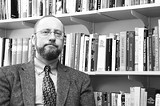[
{
"name": "500x250 Ad",
"insertPoint": "5",
"component": "15667920",
"parentWrapperClass": "",
"requiredCountToDisplay": "1"
}
]
Last week, the Vatican gave its most aggressive response to date to the molestation scandals that rocked Catholic dioceses across the country. It strengthened its opposition to homosexuality and banned gays from joining the priesthood.
Ending months of rumors and leaks, the Vatican released a document saying that homosexual priests are a detriment to the Catholic Church and its teachings. In issuing that statement, the Vatican has done three things: reinforced discrimination toward gays, ducked the nagging question of celibacy, and avoided its own complicity in the molestation scandals.
Although the document does not mention the molestations directly, it makes a veiled reference to the "emotional maturity" priests need in order to have proper relationships with other men and women. People with "profoundly deep-seated homosexual tendencies" are, according to the Vatican, living with a disorder that prevents that higher level of maturity.
Shortly before the document was released, Rochester Catholic Bishop Matthew Clark expressed empathy with --- and support for --- gay priests. "The fundamental concern of formation for a life of celibate chastity," wrote Clark, "is for sexual maturity, not sexual orientation. Good seminary formation needs to provide an environment in which both heterosexual and homosexual candidates can grow to commit themselves wholeheartedly, even joyfully, to chaste and faithful celibacy."
Father William Graf, chair of St. John Fisher's religious studies department, says he agrees with Clark's message. If the Vatican is saying that "homosexuals don't have emotional maturity," he says, "Well, I also know some heterosexuals who don't deal very well with both sexes."
In the document, the Vatican has focused most of its attention on the seminaries. It notes that the number of men pursuing the priesthood has declined over the past 30 years. But it says that its own surveys indicate that "pervasive gay subculture," not mandatory celibacy, is a key reason. The Vatican believes that the large number of gay seminarians has been a deterrent for heterosexual men considering joining the priesthood. And it has put the responsibility for purging unsuitable candidates in the hands of bishops and the seminary faculty. They would have the job of keeping men who admit to being gay from reaching "the formation," the steps to becoming a priest.
Graf says he doesn't know whether a "gay subculture" in seminaries has deterred some heterosexual men from pursuing the priesthood. "But in my experience," he says, "I don't think it is an overwhelming reason. People can enter into any organization and find the culture isn't what they expected."
And, he says, he doesn't think a priest's sexual orientation is a concern to most Catholics.In his 45 years as a priest, he says, he has never heard of a parishioner questioning whether their priest is gay or straight. "I think if you were to ask most people, they are not concerned with whether the person is homosexual or heterosexual," says Graf. "What they are concerned about is whether that priest can serve in a loving and positive way."
The idea fits with Graf's definition of church. "To me, the church is not the doctrine," he says. "It's not the institution. The church is really the people."
The Vatican has some dated views of homosexuality. Because the Catechism, a teaching manual for Catholics, makes a distinction between homosexual acts and homosexual tendencies, the Vatican says homosexuality can be "transitory." In other words, actions, though they are a grave sin, can be forgiven. And priests who haven't acted on their sexual urges in at least three years could still be ordained. That's an example of how the Vatican cherry-picks the science and psychology it favors and ignores or distorts that which goes against its doctrines.
The stereotype that homosexuals are overly emotional and stuck in puberty is used to explain why gay men can't commit to celibacy. And transitory homosexuality has been largely associated with controlled institutions where access to both sexes is limited, such as prisons. But the Vatican uses transitory sexuality to make allowances for men who convert from homosexuality to heterosexuality. And it gives the Vatican room to claim that homosexuality is a personal choice that can be changed.
"I've never heard of transitory homosexuality," says Timothy Thibodeau, a professor at NazarethCollege who has specialized in the history of Christianity. "I mean, I am not a psychologist, but the idea that it comes and goes is kind of silly."
Thibodeau, like Graf,believes the Vatican is not taking the issue of celibacy seriously. He disagrees with those who say it does not have a role in the molestation scandal. And he points out that some heterosexual priests have also broken their celibacy vows. Celibacy, in other words, has been an issue for both straight and gay priests.
"I think celibacy is an issue," says Thibodeau. "I think it is something that still has to be looked at. The parish priests in the first thousand years in the history of the Catholic Church had common-law wives. It's only in the 11th century that the Roman Catholic Church insisted on celibate males."
For Father Graf, celibacy has not been the most difficult part of being a priest, but he agrees that it's not something to be taken lightly. And Graf suggests another issue that may deter men from entering the priesthood: learning how to work within the rigid lines of authority in the Catholic Church's hierarchy. "For me, it was more difficult than celibacy," he says.
In targeting gays, the Vatican deflects attention away from the real problems, says Thibodeau. The bigger issue for him has been the way the Vatican responded to criminal acts within its ranks.
"The Vatican claims that it has investigated the American seminary system fairly thoroughly. And what prompted this, in fairness to the Vatican, was a catastrophic scandal that rocked the Catholic Church in America," he says.
"See, the criticism of John Paul II is that he was so critically ill and so incapacitated during the last five years of his papacy that either he didn't know the extent of it or he was told, but it was beyond his comprehension and beyond his ability to fully respond to it," says Thibodeau.
"Victims of the scandal felt that Cardinal Ratzinger, who is now Pope Benedict XVI, fully grasped the problem and was outraged on two levels," says Thibodeau. "One is the moral level. He saw this as reprehensible behavior on the part of a handful of clerics. And as the CEO of a multi-national institution, he understood the PR damage. He knew its credibility had been damaged. The Catholic Church's ability to speak out as a convincing voice on a number of moral and ethical issues, like euthanasia, abortion, and war, was stymied by its own catastrophe from within: the criminal behavior of these clerics."
"But equally important, and for my mind, more so," says Thibodeau, was "the criminal behavior of a handful of bishops who covered up and enabled this transgression. We would never allow a superintendent of a school district to just move a teacher into another school after doing this, but that is essentially what happened."
Gays who are already priests and celibate are likely to feel some heat from the new doctrine, but they won't be kicked out of the priesthood, though reformers don't want them to teach seminarians. What the Vatican's new doctrine will accomplish is hard to predict. The Vatican does not seem concerned that excluding gays could result in fewer priests. Instead, the document gives the Vatican another opportunity to speak out against gay rights, especially in Europe, where gay marriage has been accepted in Spain and the Netherlands.
Here, it seems to be another in a string of edicts that divides American Catholics. This one, however, goes one step further and pits the victims in the scandal, and their rights, against gays who in every sense could be excellent priests.
"I had two sleepless nights when I read this document," says Father Graf. "I really cried, because I know how much this is going to hurt some people.
On the Web: The Vatican's new document on gay priests, titled "Instruction Concerning the Criteria for the Discernment of Vocations with Respect to Persons with Homosexual Tendencies in View of Their Admission to the Seminary and to Holy Orders," is available online at www.vatican.va. Rochester Bishop Matthew Clark's November 12 column on gay priests is online at the Catholic Courier's website, www.catholiccourier.com.
Latest in News
More by Tim Louis Macaluso
-

RCSD financial crisis builds
Sep 23, 2019 -

RCSD facing spending concerns
Sep 20, 2019 -

Education forum tomorrow night for downtown residents
Sep 17, 2019 - More »






